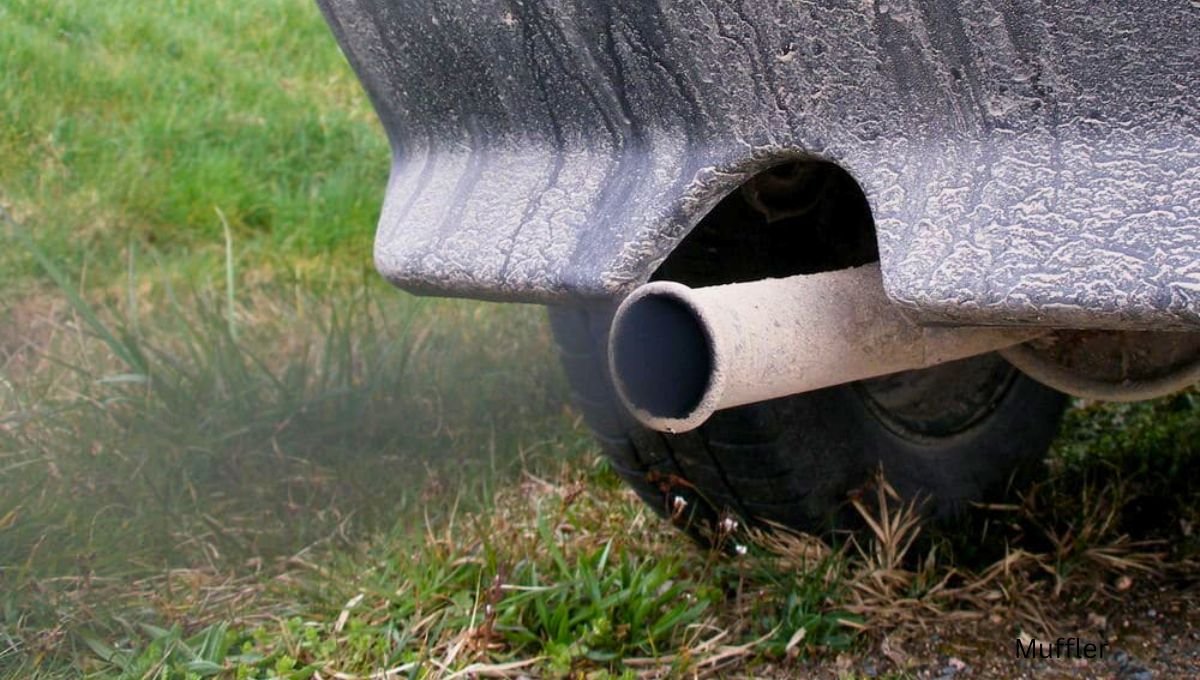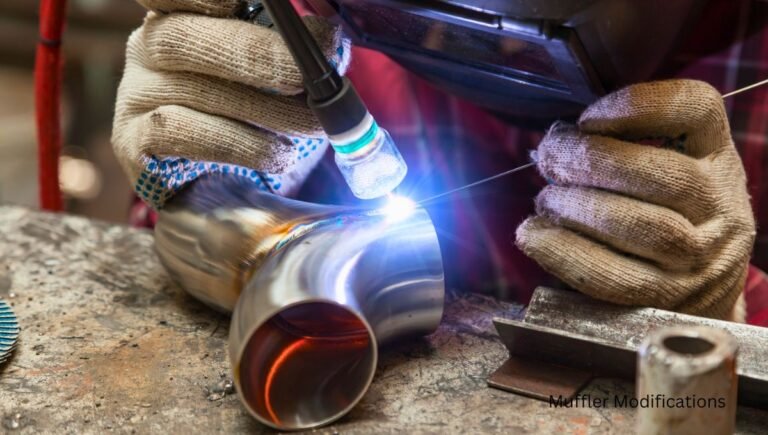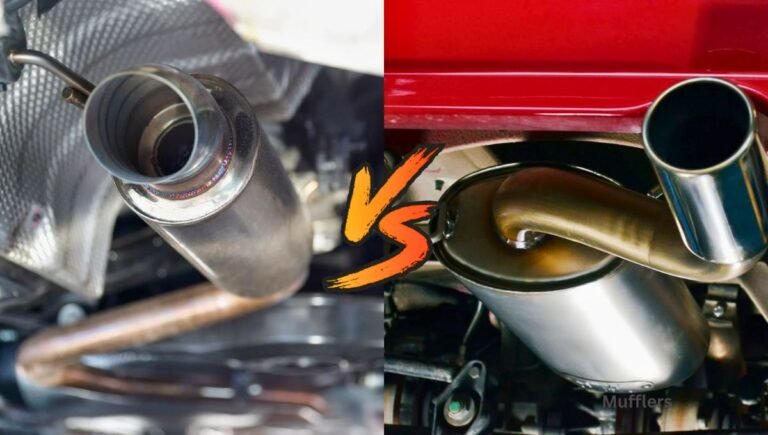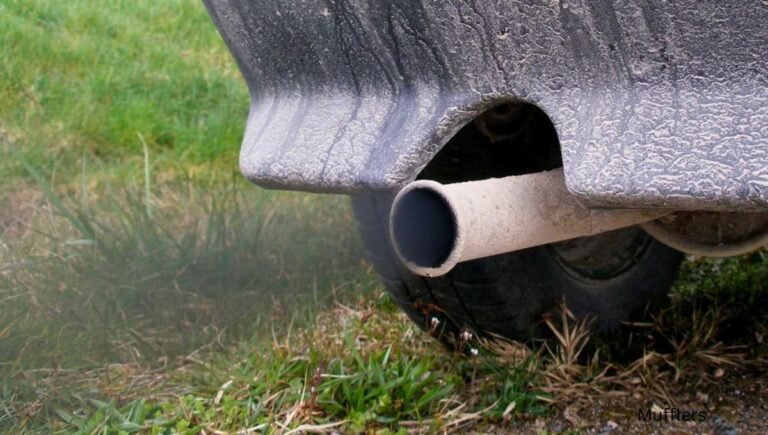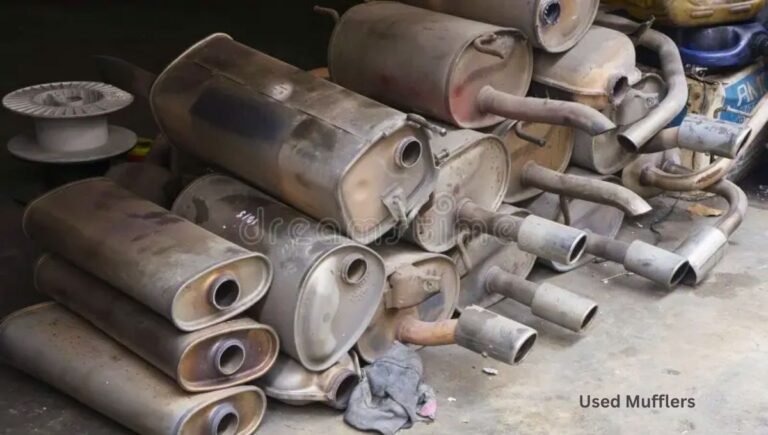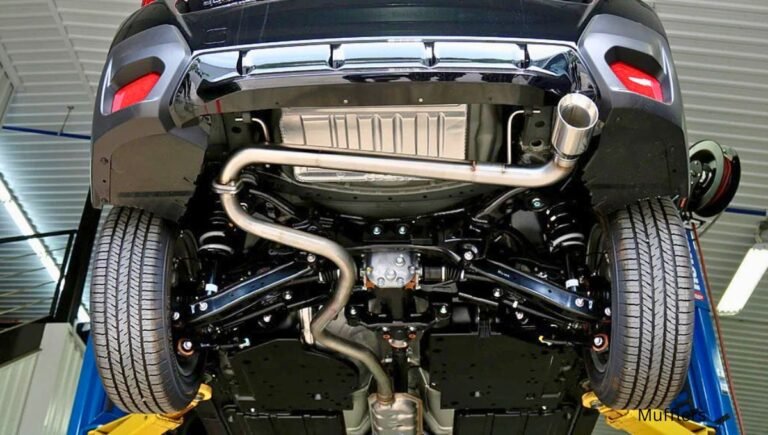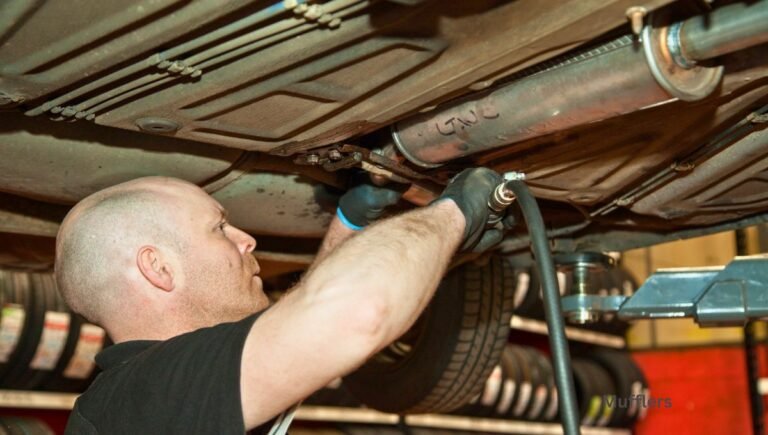Can a Bad Muffler Cause a Misfire? Unveiling the Truth!
Yes, a bad muffler can cause a misfire in a car engine. The exhaust system includes the muffler, and if it’s not functioning properly, it can lead to backpressure, which may cause a misfire.
This issue occurs because the exhaust gases aren’t able to escape efficiently, leading to a disruption in the engine’s operation. Understanding the potential impact of a bad muffler on engine performance is essential for maintaining a well-functioning vehicle.
In this blog post, we will explore the connection between a faulty muffler and engine misfires, as well as discuss the signs to watch out for and the steps to rectify this issue.
Let’s delve into the details to understand how a bad muffler can indeed cause a misfire and how to address this problem effectively.
The Role Of A Muffler In Vehicle Performance
When it comes to the overall performance of a vehicle, every component plays a crucial role, including the muffler. The muffler is an integral part of the exhaust system, and its proper functioning is essential for the efficient operation of the engine. In this section, we will delve into the basics of exhaust system functionality and examine the impact of the muffler on engine efficiency.

Basics Of Exhaust System Functionality
The exhaust system in a vehicle serves the important function of expelling the harmful gases produced during the combustion process. It consists of several components, including the exhaust manifold, catalytic converter, and the muffler. The exhaust gases travel through this system, ultimately exiting the vehicle through the tailpipe.
Each component of the exhaust system plays a specific role in the process of expelling these gases, and the muffler specifically functions to reduce the noise generated by the engine during the exhaust process.
Impact Of Muffler On Engine Efficiency
The muffler’s impact on engine efficiency is significant. A malfunctioning or bad muffler can directly affect the engine’s performance, potentially leading to issues such as misfires. The back pressure caused by a faulty muffler can disrupt the engine’s exhaust flow, resulting in decreased efficiency and power output.
Misfire Symptoms And Common Causes
A bad muffler can’t directly cause a misfire, but it can lead to engine performance issues. Misfire symptoms include rough idling and loss of power. Common causes of misfires are faulty spark plugs, fuel system problems, or engine sensor issues.
Identifying A Misfire
When it comes to identifying a misfire, there are a few key symptoms to look out for. One of the most obvious is a noticeable lack of power when accelerating, which can often be accompanied by a rough or shaky feeling. You may also notice that your engine is running louder than usual, or that you are experiencing reduced fuel efficiency.
Typical Reasons Behind Engine Misfires
There are a number of different reasons why an engine might misfire, and it’s important to understand these in order to diagnose and fix the issue. Some of the most common causes include:
- Worn spark plugs or ignition coils
- Clogged fuel injectors
- A malfunctioning oxygen sensor
- A damaged or faulty catalytic converter
- A bad muffler or exhaust system
Can A Bad Muffler Cause A Misfire?
While a bad muffler may not be the most obvious culprit when it comes to engine misfires, it is possible for a damaged or faulty muffler to contribute to the problem. If your muffler is clogged or damaged, it can restrict the flow of exhaust gases and cause a buildup of pressure in the engine. This can lead to misfires, as well as other issues such as reduced power and increased fuel consumption.
It’s important to note, however, that a bad muffler is usually not the only cause of engine misfires, and it’s important to have your vehicle inspected by a qualified mechanic in order to diagnose and fix the underlying issue.
Exploring The Connection Between Mufflers And Misfires
A bad muffler can indeed cause a misfire in a vehicle. The muffler is connected to the exhaust system, and if it becomes clogged or damaged, it can restrict the flow of exhaust gases, leading to misfires in the engine.
It’s important to address muffler issues promptly to prevent potential misfires.
How Exhaust Backpressure Affects Engine Operation
Exhaust backpressure plays a critical role in engine operation. It refers to the pressure created by the exhaust gases as they exit the engine and flow through the exhaust system. Too much backpressure can cause engine misfires, reduced power, and even engine damage.
The muffler is an essential component of the exhaust system that helps to regulate exhaust backpressure. A bad muffler can cause excessive backpressure, leading to engine misfires.
Muffler Conditions That Could Lead To Misfires
A muffler that is clogged, damaged, or leaking can cause misfires. A clogged muffler can lead to excessive backpressure that can cause the engine to misfire. A damaged muffler can cause exhaust leaks that can also lead to misfires. Leaks can cause the engine to run lean, leading to misfires and other engine problems.
A muffler that is leaking can also allow oxygen into the exhaust system, causing the engine to misfire. It’s essential to keep the muffler in good condition to avoid these issues.
In conclusion, a bad muffler can cause engine misfires by creating excessive exhaust backpressure or allowing oxygen into the exhaust system. It’s essential to keep the muffler in good condition to avoid these issues and ensure optimal engine performance. If you’re experiencing engine misfires, it’s crucial to have your muffler and exhaust system inspected by a qualified mechanic to identify and address any issues.
Debunking Myths About Mufflers And Engine Performance
A bad muffler does not directly cause a misfire in the engine. Misfires are typically caused by issues with the spark plugs, ignition system, or fuel injectors. While a faulty muffler can affect engine performance, it does not directly lead to misfires.
When it comes to engine performance, there are many misconceptions surrounding the role of mufflers. Some people believe that a bad muffler can cause a misfire in the engine, while others are unsure about the impact of mufflers on overall performance. In this article, we will debunk these myths and shed light on the realities of muffler-related engine issues.
Common Misconceptions
1. A bad muffler can cause a misfire: This is a common misconception among car owners. While a malfunctioning muffler can affect the sound and emissions of the vehicle, it does not directly cause a misfire in the engine. Misfires are typically caused by issues with the ignition system, fuel delivery, or engine components, rather than the muffler itself.
2. Mufflers impact engine performance: Another misconception is that mufflers have a significant impact on engine performance. While mufflers do play a role in reducing noise and improving exhaust flow, their impact on overall engine performance is minimal. The primary function of a muffler is to reduce noise levels and control emissions, rather than enhance horsepower or torque.
Realities Of Muffler-related Engine Issues
1. Muffler leaks can affect engine performance: While a bad muffler may not directly cause a misfire, it can still impact engine performance if there are leaks in the muffler system. These leaks can result in an improper air-fuel mixture, leading to decreased power and efficiency. It is important to address muffler leaks promptly to avoid any potential negative effects on engine performance.
2. Muffler maintenance is crucial: Although mufflers may not have a significant impact on engine performance, proper maintenance is still essential. Regular inspections and maintenance can help detect any issues with the muffler system and prevent further damage. Additionally, a well-maintained muffler ensures optimal noise reduction and emission control, contributing to a smoother driving experience.
In conclusion, it is important to separate fact from fiction when it comes to mufflers and engine performance. While a bad muffler does not directly cause a misfire, it can still affect engine performance if there are leaks in the system. Regular maintenance and prompt repairs are key to ensuring a properly functioning muffler and optimal engine performance.
Diagnosing Muffler-related Misfires
When it comes to diagnosing engine misfires, most people tend to overlook the muffler as a potential culprit. However, a bad muffler can indeed cause misfires in your vehicle. Misfires occur when the air-fuel mixture in one or more cylinders fails to ignite properly, leading to a rough running engine and decreased performance.
In this article, we will explore the connection between a bad muffler and misfires, as well as the steps and tools you can use to diagnose muffler-related misfires.
Steps For Inspection And Diagnosis
Inspecting and diagnosing muffler-related misfires requires a systematic approach to ensure accurate results. Here are the steps you can follow:
- Start by visually inspecting the muffler for any signs of damage, such as holes, rust, or leaks. A damaged muffler can disrupt the exhaust flow, leading to misfires.
- Next, check the exhaust system for any obstructions, such as debris or clogs. A blocked exhaust system can increase backpressure, affecting engine performance.
- Inspect the exhaust manifold for cracks or leaks. A faulty manifold can cause irregular exhaust gas flow, resulting in misfires.
- Use a diagnostic scan tool to check for any stored trouble codes related to misfires. These codes can provide valuable insights into the specific cylinders experiencing issues.
- Perform a compression test on each cylinder to assess the internal condition of the engine. Low compression can contribute to misfires.
- Finally, conduct an exhaust backpressure test to measure the resistance in the exhaust system. Excessive backpressure can impede proper engine function.
Tools And Techniques For Troubleshooting
When troubleshooting muffler-related misfires, having the right tools and techniques can streamline the diagnostic process. Here are some tools and techniques you can utilize:
| Tool/Technique | Description |
|---|---|
| Diagnostic scan tool | Allows you to retrieve trouble codes and view live data, helping pinpoint the cylinders affected by misfires. |
| Compression tester | Enables you to measure the compression levels in each cylinder, identifying potential issues that may cause misfires. |
| Exhaust backpressure gauge | Helps measure the backpressure in the exhaust system, determining if it is within the acceptable range. |
| Smoke machine | Allows you to introduce smoke into the exhaust system, revealing any leaks or cracks that may contribute to misfires. |
By following these steps and utilizing the appropriate tools and techniques, you can effectively diagnose muffler-related misfires. Remember, addressing any muffler issues promptly can help restore your vehicle’s performance and prevent further damage to the engine.
Repair Or Replace: Addressing Muffler Issues
A malfunctioning muffler can potentially lead to a misfire in your vehicle. It is important to address muffler issues promptly to prevent any further damage. Consider whether repairs or a replacement is necessary to ensure your vehicle operates smoothly.
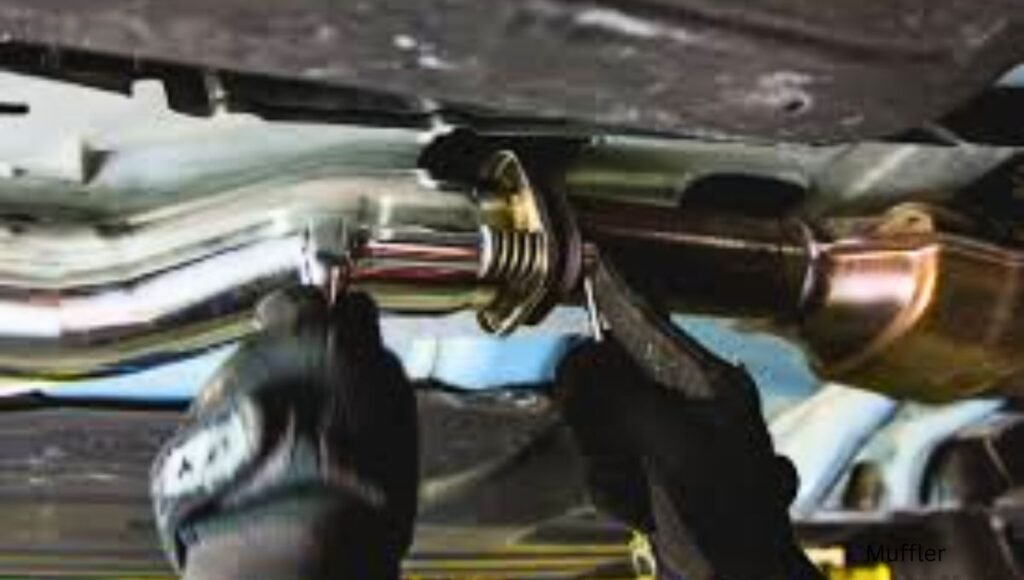
Repair or Replace: Addressing Muffler Issues
When to Repair Your Muffler
Is your car making unusual noises and showing signs of reduced performance? It might be a bad muffler causing a misfire. A malfunctioning muffler can lead to engine misfires, reducing fuel efficiency and causing potential damage to the vehicle’s exhaust system. If you notice any of these symptoms, it’s essential to address the issue promptly.
Signs You Need a Muffler Replacement
– Excessive Noise: If your muffler is producing loud, unusual noises, it may be time for a replacement.
– Visible Damage: Any visible signs of rust, holes, or physical damage indicate the need for a new muffler.
– Reduced Performance: A decrease in engine power or acceleration could be a sign of muffler issues.
Remember, timely maintenance of your muffler is crucial to ensure the efficient operation of your vehicle.
Preventive Measures To Avoid Muffler-related Misfires
A bad muffler can cause a misfire in your vehicle. To prevent this from happening, it is important to maintain your muffler by regularly checking for any signs of damage, such as rust or holes, and replacing it if necessary.
Additionally, avoiding excessive idling and accelerating too quickly can also help prevent muffler-related misfires.
Regular maintenance and early detection play crucial roles in preventing muffler-related misfires.
Expert Insights: Mechanic Advice On Muffler Care
Expert mechanics advise that a bad muffler can cause a misfire in your vehicle’s engine, leading to decreased performance and fuel efficiency. Regular muffler care, including inspections and necessary repairs, can prevent these issues and keep your vehicle running smoothly.
Professional Recommendations
A bad muffler can indeed cause a misfire in your vehicle, leading to performance issues. Here’s what expert mechanics recommend for proper muffler care:
- Regularly inspect the muffler for signs of damage or corrosion.
- Address any exhaust leaks promptly to prevent further damage.
- Ensure the muffler is securely fastened to the exhaust system.
Long-term Strategies For Muffler Health
To maintain your muffler’s health in the long run, consider the following:
- Opt for high-quality mufflers to ensure durability and performance.
- Have your exhaust system checked during routine maintenance visits.
- Avoid driving over rough terrain that could potentially damage the muffler.
Case Studies: Real-life Scenarios Of Muffler-induced Misfires
Explore real-life case studies demonstrating the impact of a faulty muffler on engine misfires. Uncover how a bad muffler can lead to misfires and learn from practical scenarios showcasing the connection between muffler issues and engine performance problems.
Successful Diagnoses And Repairs
The following table outlines successful diagnoses and repairs of muffler-induced misfires:
| Case | Issue | Diagnosis | Repair |
|---|---|---|---|
| Case 1 | Misfire Code | Excessive back pressure | Replaced muffler |
| Case 2 | Loss of Power | Restricted exhaust flow | Repaired exhaust leak |
Lessons Learned From Muffler Failures
- Regular maintenance prevents muffler failures.
- Strange noises can indicate muffler issues.
- Muffler leaks can lead to misfires.
Conclusion
A bad muffler can indeed cause a misfire in your vehicle. It is crucial to address muffler issues promptly to prevent potential engine damage. Regular maintenance and inspections can help avoid misfire problems and ensure optimal vehicle performance and safety on the road.

